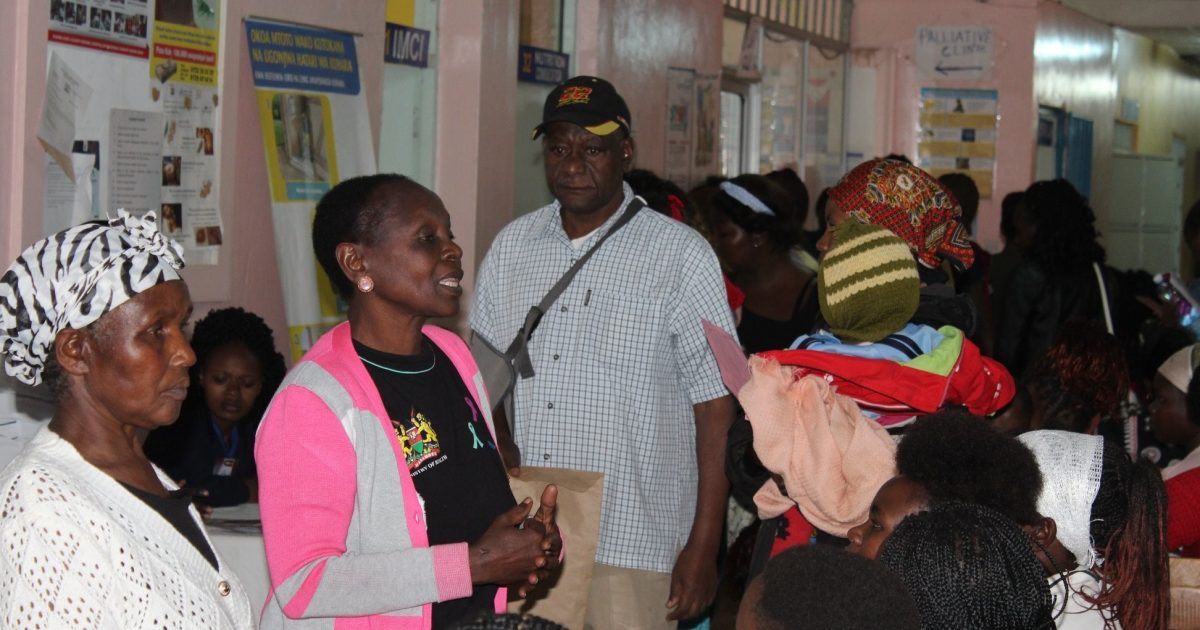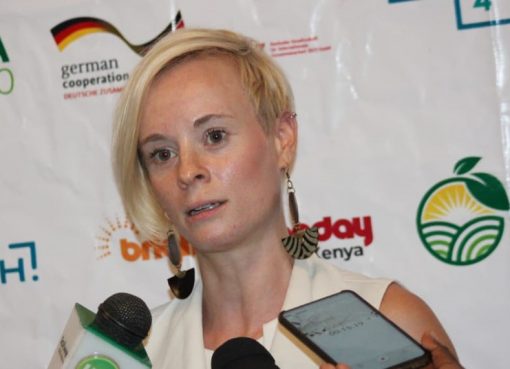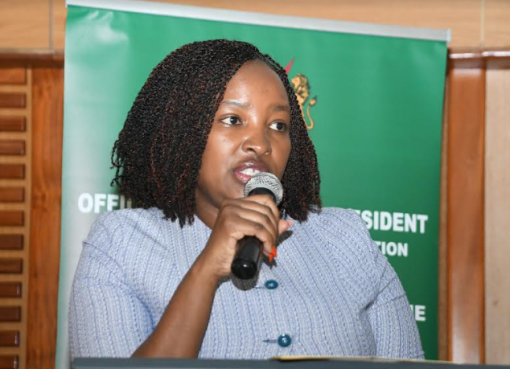In 1993, Margaret Wanjiru Mburu’s life took a devastating turn when she was diagnosed with breast cancer at just 40 years old.
The diagnosis not only shattered her world but also led to an unexpected form of isolation, stigma.
Now 71, Wanjiru recalls how friends distanced themselves, and even her once-supportive church community turned away.
“After my diagnosis, people saw my weight loss and hair loss from chemotherapy and assumed I had AIDS, which was an epidemic at the time,” she shares with Kenya News Agency reporter.
The rejection was painful, she added. “There was a time in church when no one would sit with me. It was just me and another woman who was HIV positive on the bench. This however did not faze me as I kept on going to church,” she says, her resilience shining through.
Despite the emotional toll and grueling treatments, Wanjiru found a renewed purpose, helping others on the same difficult path.
In 2015, she co-founded the Kiambu Cancer Support Group, along with nine other breast cancer survivors and although initially the group focused on breast cancer, as word spread around a broader need emerged.
“People began reaching out, asking for help with other types of cancers, like cervical, prostate, and esophageal cancer,” she explains, saying this made her open doors to all cancer patients.”
The group quickly grew, expanding from 10 members to 50 within a few months and today the Kiambu Cancer Support Group has over 100 members, offering palliative care and emotional support to both patients and their families.
However, Wanjiru expresses disappointment with the level of county government support noting that more financial backing is essential to provide comprehensive care, particularly for low-income patients who struggle to afford medication, transport, and other treatments.
“We have been to the Governor’s office, but we were told to write a letter to the CEC of Health Services, when we did, he responded that they could not assist us because they already offer similar services,” she recalls saying the more support groups the better in order to reach those in need.
Despite this, Wanjiru and her team have continued to offer support with help from well-wishers, local churches, and Kiambu Member of Parliament John Machua Waithaka who has been assisting them.
Their work focuses on palliative care, which provides relief from the symptoms and stress of serious illnesses, aiming to improve the quality of life for both patients and their families.
The world commemorates World Hospice and Palliative Care Week from this week 7th to 12th of October as a global observance dedicated to raising awareness about hospice and palliative care, essential services that improve the quality of life for individuals with life-limiting illnesses.
This year’s theme, “Ten Years Since the Resolution: How are we doing?” reflects on a decade of global efforts to improve access to palliative care marking also 10 years since the
World Health Assembly passed the only stand-alone resolution on palliative care, calling for all countries to strengthen palliative care as a component of comprehensive care throughout the life course.
According to the World Health Organization, globally approximately 56.8 million people are in need of palliative care, with 78 percent of them living in low- and middle-income countries. Sadly, only 12 percent of these needs are being met, leaving many to suffer.
In Kenya, an estimated 800,000 people require palliative care each year, yet only about 14,552 have access to these services. Access is even more limited for children, with less than 5 percent of pediatric patients receiving the care they need.
The Ministry of Health has been working with County governments, the Kenya Hospice and Palliative Care Association (KEHPCA), and other stakeholders to implement the
Kenya Palliative Care Policy 2021-2030 that was launched in 2021
As part of these efforts, KEHPCA Executive Director David Musyoki says that over the past decade, they have trained more than 12,000 healthcare and non-healthcare professionals in palliative care.
Additionally, he stated that more facilities have been put up across the country to aid in reaching patients and families with palliative care needs.
“When we started in 2014, there were only 48 providers, but today, we have over 100 facilities providing palliative care across the country,” Musyoki says.
Wanjiru acknowledges the strides the government has made through the health ministry but is quick to say that more still needs to be done.
“The policy is good, but the government should do more to address just as they have done with HIV/AIDS, they should educate and train more people in palliative care,” Irene Kung’u, the secretary of the Kiambu Cancer Support Group says.
The Palliative Care policy in the Country outlines Kenya’s roadmap to improve access to palliative care services across the country, aiming to integrate these services into primary healthcare and ensure availability in hospitals and community health facilities.
The policy also addresses critical areas such as End-of-Life Care, Advance Directives, and the needs of Special Populations, including children, the elderly, and those living with disabilities.
The Kiambu Cancer Support Group continues to play a vital role in addressing the gaps left by mainstream healthcare, providing essential community-based support for cancer patients and survivors in the region.
By Sylvia Wanjohi





